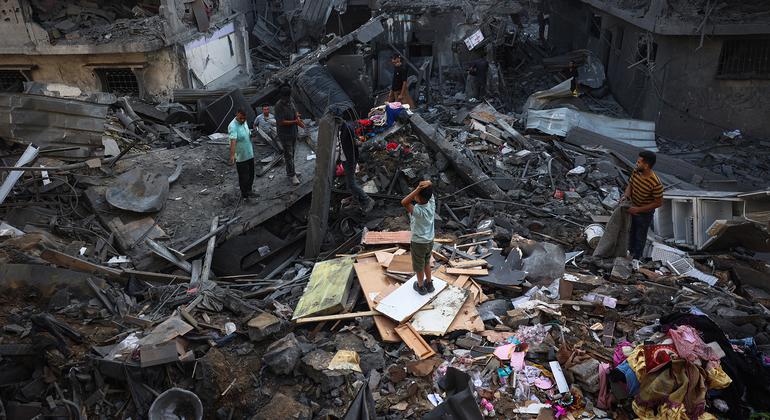The fuel crisis in Gaza has reached alarming levels, putting humanitarian operations and the lives of over two million Gazans who depend on aid in this besieged territory at serious risk. Various UN agencies have warned that the lack of fuel could lead to a complete shutdown of essential services, with devastating consequences for the population at a time marked by hunger and ongoing violence.
Fuel is crucial for survival in Gaza, powering everything from hospitals and water systems to bakeries and ambulances. Without a steady supply, failures have already been reported in maternity and intensive care units, and ambulances have ceased operating, increasing the risks to the health and lives of citizens.
The situation becomes even more critical as humanitarian agencies are forced to completely halt their activities, leaving the population without access to healthcare, drinking water, and any kind of assistance. Recently, Israel allowed a small amount of fuel into Gaza after 130 days of restrictions, but the 75,000 liters that arrived in two days are clearly insufficient to meet daily needs and vital humanitarian operations.
UN authorities have demanded an immediate and continuous supply of fuel, as well as safe access throughout the region, emphasizing the urgency of the situation. Without this basic resource, they warn, Gaza could face a total collapse of humanitarian initiatives.
Stephan Dujarric, UN spokesperson, has described the situation as extreme, stating that each day without a ceasefire contributes to more avoidable deaths, particularly affecting children and those attempting to access aid. The restrictions imposed by Israel on humanitarian access have further complicated the situation; of 15 requested aid missions, only six were authorized, resulting in the denial of vital assistance for many.
Additionally, the fuel shortage impacts not only healthcare but also complicates water and waste management, raising alarms among agencies about a possible imminent crisis in these services. The safety of humanitarian workers has become a major concern, with recent incidents highlighting the dangers of their work in the region.
Source: MiMub in Spanish










